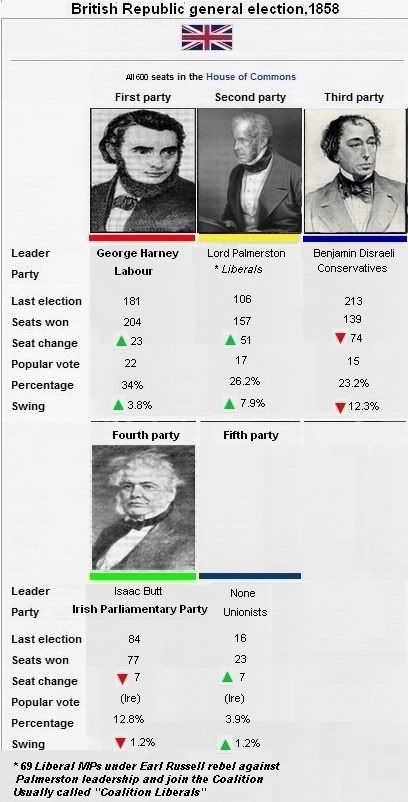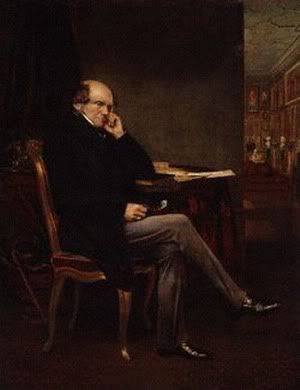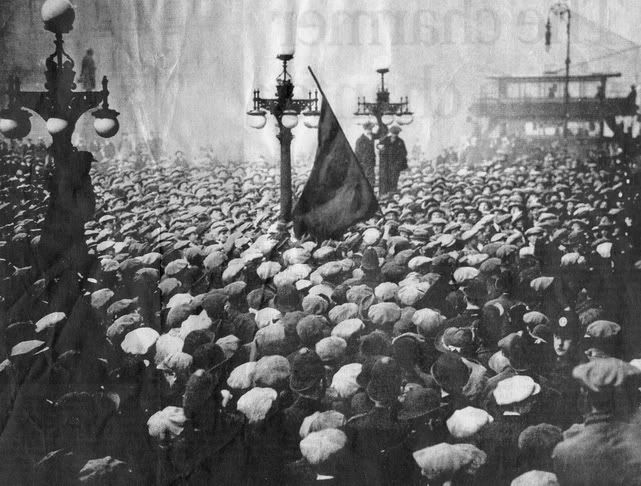The Election of 1858
Despite all that had happened during Disraeli’s 6 years as Prime Minister, one event dominated the election – the Manhattan Commune. On one hand Labour saw the Commune as the ultimate sign that if reforms were not made then society would collapse, the Tories saw it as a warning of what could happen if socialist movements were not restrained and the Liberals preferred to see it as an apparition that would not occur in Britain.

The election would produce one of the least clear Parliaments in the history of the Republic. The Tory hard-line against the revolutionary socialists played a major role in their collapse in which they lost more seats in a single election than any Conservative party in Republican history and sank to a humiliating 3rd place – just as they had in the dark days of Robert Peel’s leadership. Perhaps more on the back of Tory failings than their own successes the Liberals, recently reuniting with the rump Whig Party, experienced not unimpressive gains. Labour secured a strong improvement in seats as for just the 3rd time in Republican electoral history a party secured more than 200 seats (the previous two had been the Tories in 1836 and 1851) and became the largest party in Parliament for the first time. In Ireland the Unionists made significant gains on the IPP as 7 seats fell into their hands.
With the election over the real politics could begin as rival parties sought to band together enough support to form a coalition government. The simple problem was that the election had produced a situation in which such a coalition would be very difficult to bring together. Labour had come tantalisingly close to securing a Labour-IPP coalition, but the two parties fell just 20 seats short of a majority. This meant that the Liberals held the balance of power in their hands. If Palmerston looked left then Labour could have a strong government, if he looked right then he might be able to bring together a coalition with the Tories and Irish Unionists – however this coalition would have a slim majority of just 19.
Palmerston, being the head of the Liberal right, was averse to any coalition agreement with Labour – especially if they were to lead the coalition. He therefore began negotiations with the Tories, a move that angered the Liberal left, led by Earl Russell, who felt that Conservative calls to limit the freedoms the Liberals had fought to secure over the past decades meant that the Liberals could not work with them in good conscious. But in the first couple of days the Russellite grumblings remained isolated to the Earl’s closest allies within the party.
But even at this early stage Earl Russell was in clandestine negotiations with the Labour leadership over a potential split within the Liberals that would scupper Palmerston’s hopes of an alliance with the right.
It would be over the issue of the Premiership that the Tories ended their hopes of government. Aside from Disraeli, all the Republic’s Prime Ministers had come from the Whig-Liberal tradition and the party was extremely eager to restore this situation by getting Palmerston the position as PM. This made sense as the Liberals were the largest of the parties looking to join the coalition. However, in reality Disraeli realised the greater strength of the Tories within the coalition, due to Unionist support and Liberal divisions, and made the fatal error of attempting to play hardball with Palmerston over the issue of which of them would be PM. This play was most likely just a ploy to get greater pro-Tory concessions but it galvanised Russell’s supporters within the party and led directly to the split within the Liberals.

After much contemplation Earl Russell decided to go ahead with his revolt and moved to join Labour in government with his supporters. The so called ‘’Rebellion of the 69’’ (due to the fact that 69 Liberal MPs left the party for the coalition) gave the Labour led coalition a strong majority of 50 seats. Russell was adamant that the rebellion was the only way to save Britain from a reactionary government that would threaten the freedoms of the British people and saw working with Labour as the best way to peacefully sooth the social tensions in Britain.
A full blown rebellion from their party was a big ask on the 69 and it is no surprise that they made serious demands of Labour in return for their support:
• The government had to agree to pursue a free trade policy
• It had to agree to limit its intentions for state interference in the free market
• The Labour program of reforms was limited with the proposal to create a minimum wage struck off and plans to create an 8 hour day altered to a 14 hour day
• The Liberals were to be given the Foreign Office and were to be free to pursue their own policies – being from the Liberal left this would largely entail isolation unless Britain’s allies or Empire were threatened
• The Liberals were to be granted 1/3 of cabinet positions despite making up less than 20% of the coalition in Parliament
The IPP also took its chance to make bold demands of Labour. Aside from economic support for Irish industrialisation the government would have to make a commitment to form an ‘Irish Assembly’. The Assembly would have extremely limited powers (mostly over local law) but would be entirely elected by the Irish people. Many within the IPP saw this limited Home Rule as the first step towards Irish independence.
Across Britain the news of Labour's victory seemed to sweep hundred of thousands into an excited frenzy. Hoardes of workers poured out into the streets to celebrate - many saw Labour's victory as the final moment where the government would begin to serve the interests of the working class, bringing their years of hardships to an end. No British government had had such a weight of popular expectation on its shoulders since Earl Grey's Premiership attempted to heal the rifts of the Civil War.



